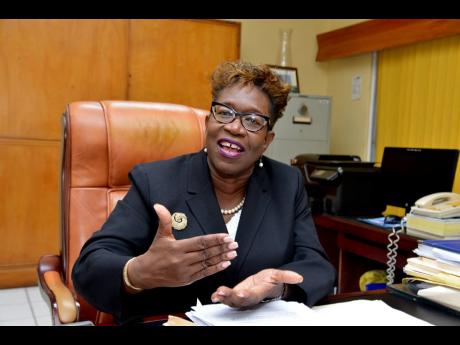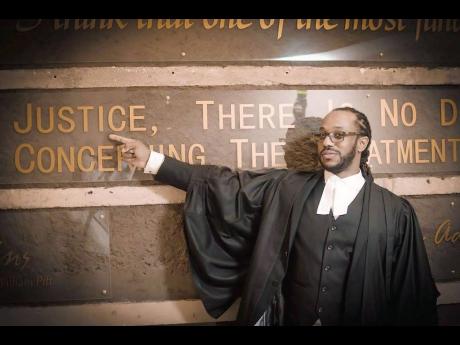DPP lashes lawyer over Kartel phone claims
The prospect of a disciplinary hearing now confronts Vybz Kartel’s lawyer, Isat Buchanan, as Jamaica’s top prosecutor, Paula Llewellyn, rebukes him for “reckless and irresponsible” allegations that he is being denied access to evidence.
In a six-page excoriation of the attorney, the director of public prosecutions (DPP) expressed shock over media statements attributed to Buchanan that her office was being “very dodgy and shady and very deliberate in their action to continue to violate the constitutional rights of Adidja Palmer”.
The comments, published by online news site Loop Jamaica on November 23, highlighted Buchanan’s concerns over access to a cell phone that was key in the 2014 murder conviction of the dancehall artiste, which was upheld earlier this year by the Court of Appeal.
But Kartel and his co-convicts, Shawn ‘Shawn Storm’ Campbell, Kahira Jones, and Andre St John, are appealing to the country’s apex court, the UK-based Privy Council.
Among the arguments being pushed is the claim that the phone, which contained damning voice notes, was tampered with.
Buchanan reportedly said lawyers they were working with in England want to inspect the phone, but“despite attempts of myself and the Queen’s Counsel, we have been unable to get access to the cell phone, which we believe has evidence of tampering and that the state prosecutors have been “authors of delays”.
Dismissing the “scurrilous” accusations, the DPP has produced evidence suggesting that Buchanan should have been aware that her office did not oppose access, does not have possession of the phone, and that the “onus” was on him to get permission from the Supreme Court.
“The words ‘dodgy’ and ‘shady’ are usually used to describe the behaviour of persons of a dishonest character or dysfunctional moral compass, which is commonly found in thieves, fraudsters, and conmen,” Llewellyn said in a statement on Thursday.
“It goes without saying that this sort of behaviour would be highly unbecoming of any attorney-at-law. Of course, if such a person were convicted, that person could never qualify to be employed as a prosecuting attorney in the public service.”
Drug convictions
Buchanan has been twice convicted in drug-related cases – in 1996 in Jamaica and in 1999 in the US, where he was imprisoned for 10 years. The Jamaican record was expunged in 2014.
Telephone calls to Buchanan have gone unanswered.
Kartel and his co-convicts were convicted and sentenced to life imprisonment for the 2011 murder of Clive ‘Lizard’ Williams.
The DPP did not let up in her castigation, telling the attorney that the “only inference” that could be drawn from his comments about her office and the 57 prosecutors who work there was that they “acted dishonestly, illegally, criminally, and unprofessionally”.
The claim that the ODPP was violating Kartel’s constitutional rights was dismissed as “even more outrageous”.
“For COVID reasons, he (expert) has declined to travel to Jamaica,” read a section of an email sent to the DPP’s office by the English Queen’s Counsel working with the Kartel team, who later suggested that the phone be couriered to England.
The DPP’s office said it was not “comfortable” with that proposal, hoping, instead for “some window of opportunity that will open that will allow your expert to come to Jamaica”.
The release of the emails, on which Buchanan was copied, is to demonstrate that he should have been aware that the office was not blocking access to the evidence, Llewellyn argued.
Access to the evidence can only be granted by the court in whose custody the evidence goes once it was tendered during the trial, the statement added, noting that it was up to Buchanan to make a formal application to the registrar of the Supreme Court for the exhibits.
“We deem the mischarac-terisation of the ODPP by Buchanan of us being dodgy, shady, and breaching Mr Palmer’s constitutional rights as being reckless, dangerous, and a possible violation of the canons of the Legal Profession (Canons of Professional Ethics) Rules,” the DPP said on why she is taking the matter to the General Legal Council, which regulates the profession.


